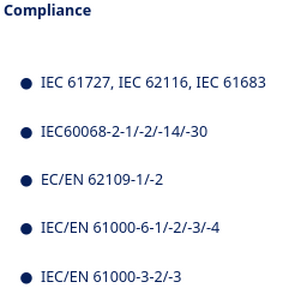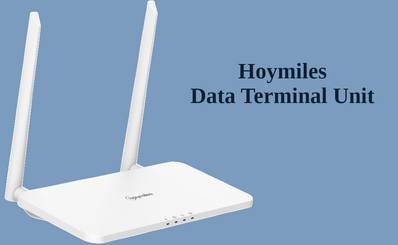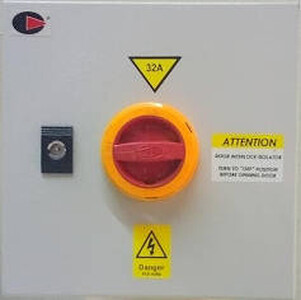Plug and play solar. Thoughts?
What do you think of these plug-and-play Balcony Solar panels ?
I'm not sure they're legal in the UK but the EU has made a supra national advisory to promote them up to 800 watts. I believe for those with the space - large balcony or fence - you can install more in a sequentially timed set-up with storage.
They're big in Germany, Netherlands and Spain. I just like the fact that it removes the extremely high installation costs of 'grown-up' solar. But can you do much with 800watts?
Looks really expensive to me. For £1200 you can get a 3.6kW kit with 4.3 kW of black panels in the UK. Anyone with the inclination to fit the one you linked to would be able to manage a homebrew setup for much cheaper.
I'm quite tight mind you since I'm Scottish and my grandfather was a Yorkshireman.......It's in the DNA 😀
@derekdeleon Looks really expensive to me. For £1200 you can get a 3.6kW kit with 4.3 kW of black panels in the UK. Anyone with the inclination to fit the one you linked to would be able to manage a homebrew setup for much cheaper.
You can buy them cheaper and/or add batteries. I linked to the Dutch example to show what I mean, technically speaking, but it got missed. 🫣
It's literally plug-and-play - they go in a normal 3 pin power socket and that is it. That is why they are legally limited to 800 watts. You cannot do that with what you suggested - that's 'normal' solar panels.
I do not have the electrical skills to install my own solar. I cannot afford to pay the installation fees for solar panels and inverters which is more than the kit usually. So they kind of appeal.
These are designed for flat renters. They can self-install and take them away when they move. A sort of IKEA for solar. They've really taken off in Germany, Spain and the Netherlands where there's a lot of apartments. Belgium has banned them. (The UK is also ok up to 800w I discovered).
There's no 'energy transition' without considering renters and people with low income. So I thought it was quite a good idea.
Technical feedback anyone? Useful? Or not? Or what?
@lucia, I think balcony solar panels are cool and for good reason… they offer a relatively low-cost way for people to dip their toes into solar without needing a full rooftop installation. In the UK, though, things are usually a bit more complicated when it comes to legality and grid connection. I bet @transparent knows the answer on whether you need approvals or not.
As for whether 800W is useful… it depends on expectations. In ideal conditions, 800W could generate about 3-4kWh per day during summer, which is enough to cover things like phone and laptop charging, TVs, WiFi, running a fridge or covering some of your standby loads for a few hours. It won’t power your whole home, but it can trim your grid consumption, especially if you’re home during the day to use the energy directly.
You’re absolutely right about the cost advantage. Traditional solar installations in the UK come with hefty labour, scaffolding and paperwork costs. Balcony systems sidestep all of that. If you’ve got the right space and face the ‘right’ way, it’s a neat solution.
Get a copy of The Ultimate Guide to Heat Pumps
Subscribe and follow our YouTube channel!
@editor Thanks. 3-4kw will heat a 200litre water tank with some left over. 😁
I think they are cool too. And it's just the beginning in terms of innovation and design for the variety of real lives. So its encouraging.
The Dutch supplier (who I think is the original company doing this) will supply linked kits with double the panels (for bigger balconies) but they are prewired sequentially to keep the power levels at 800w. That would be good for battery storage too I think.
I think you don't have to notify the grid but shall await the expert @transparent
@lucia For the renter or flat dweller, I can see your point and can see the utility. 800w is still useful and will trim the bills.
I couldn't comment on legality but I'd be a little wary about touching the three pin male plug when unplugged....just in case 🤔 If a similar system could be obtained at better price I'd say it is a workable idea, and as you point out it is easily removeable to take with you.
I share @derekdeleon 's safety concerns on the electrical side of the issue,
The site description of the mains connection is vague and might have suffered in translation
Let me make this clear...
The UK regulations for RCDs and RCBOs has changed in May 2024.
These are the personnel safety devices in our consumer units.
If the circuit(s) being protected have devices which export to the grid, then the trip must be bi-directional.
Please read my Safety Update here, with beautiful illustrations! 😎
2: I'm equally wary of the risk of a solar panel falling from a balcony, either during installation or as a result of a subsequent mechanical failure.
Rooftop rail-mounting systems are very strong and proven technology.
They have to withstand wind-shear forces beneath the panels.
3: These are just bi-facial solar panels equipped with individual optimisers.
We're used to seeing optimisers on rooftop panel systems,
and they are effectively DC-DC converters.
In this case they'd be DC-AC converters and would require G98 certification to be permitted to feed into the grid.
I've just asked a couple of grid engineers to clarify the regulations for us.
Here's a link to a Eurener Nexa 500W bi-facial panel at £121
There are cheaper options, but I'm not providing a URL to the most popular bi-facial panel available in the UK because the manufacturer is on a Government black-list for the use of slave labour.
Save energy... recycle electrons!
@lucia The idea of supplying power through a plug ie in reverse, is very bad news, unless I have misunderstood.?
Daikin 6Kw ASHP.
MG4 EV
1926 Semi with loft and wall cavity insulation, all radiator.
I'm checking this same point @jancold !
Firstly, the product description doesn't provide detail of the micro-inverters themselves.
But they're designed by a Chinese company, trading here as Hoymiles.
The DIY installation inverters used in this Balcony kit are listed here.
The section which states product certification does not include G98 approval at this time (March'25)
The Installation Instructions in English are a PDF which is here.
There is a weather-proof mains socket which needs wires connected to it at the balcony end:
The IP-rating of that mains connector doesn't seem to be stated.
I would hope it's IP65.
If you get one of these kits and you have any doubts... ask a qualified electrician!
Addendum: Don't buy it in UK. It's illegal to connect it. See Explanation below.
I expect that the Micro-Inverters use a phase-locked loop (PLL) to sense the 50Hz mains frequency and synchronise to it.
Thus there is no 240v AC output until the plug is connected to a 13A wall socket.
However, this is not stated explicitly, and it should be!
Finally, there is a 2.4GHz radio-frequency communication between each MicroInverter and a Data Terminal Unit (DTU) in the home.
Since it's coloured white and the HoyMiles website uses a white background, you can't actually see it,
so I'm reproducing it here!
The DTU collects data from the Micro-inverters and transfers it to your home WiFi system.
From there it goes to the cloud, which is based in China.
You can monitor your solar generation by logging back into the cloud using a Smartphone App.
I have no idea whether that is 'safe' from a cyber-security viewpoint. I suspect not.
It would seem to have registered your location and IP address in a database, about which I have reservations.
Save energy... recycle electrons!
Similar systems are readily available online in the UK at the 'usual' places. They are (allegedly) G98 approved and are grid-tied, so don't generate mains power unless already connected to the mains.
OK... So I have now received specific guidance on the legality of using such a Balcony Solar System in UK.
In short, the answer is NO!
Explanation:
In mainland Europe, the importers of the Plug-in Solar Balcony kit are relying on a couple of exceptions to the G98 certification.
The suppliers are claiming that the kit isn't regarded as a 'Significant' generation source whilst its output is restricted to 800w.
However, they are wrong.
Here in UK, Engineering Recommendation G98 applies to any source of generation up to 16A (per phase).
That means:
- The installation must be hard-wired and connected via a lockable isolation switch, like this:
- The installation must be connected to the mains by a qualified professional who is required to notify the DNO within 30-days.
- The earthing available via a 13A mains socket may not be used for a fixed installation. It's inadequately rated for such purposes.
- There are also specific requirements for the RCBO trip in the dedicated feed which connects to a generation device,
and I've mentioned that above.
- in UK, generation/export devices must treat all aspects of Network Stability and Frequency Response as Significant,
and should therefore comply with power-quality specifications.
... and a number of other technical points which I don't think I need to mention here.
As always with this Forum, anyone reading this should pass on the above information as widely as possible.
Please tell friends, work colleagues and people you meet in the pub!
Do not buy this Balcony Solar Kit in the UK.
Any journalists here, such as @emmagatten , please take note.
This is a safety issue, and we would appreciate it if your advertising departments didn't accept adverts for such a system.
Many thanks.
Save energy... recycle electrons!
@transparent Ok so we crossed posts.
You are just linking to one weird company. There's lots of companies selling them and the well-known Dutch company in the first post designed their own.
I think it needs emphasising these are not 'new' . They are on sale all over Europe inc Ireland & also Australia (except Belgium). They've been around for a few years but although the UK started selling them recently they are a regulatory 'grey area'. Germany legalised them in 2023. I think most other countries did at the same time.
And as usual in the UK, installers are trying to get in the way of them by claiming expertise in 'balcony solar'. But they are designed to cut out professional installers - hence my interest. I can accept paying a qualified electrician but Solar installers are charging silly money.
There's over 2 million in Germany (I checked with experts - not sellers) and they're really common in Spain and Netherlands that I know about - you can literally see them - my sister's apartment block has quite a few. All places with far more flat-dwellers than the UK.
Here's an interesting article about them scroll down for UK
I don't think their safety is very much in question beyond UK although there's a few electrical questions in different countries (for which they have specific regulations to abide by - eg the 800watt limit and sequential pre-wiring) nor fixings which are tried and tested and are designed specifically for flats with alternatives for fencing and a metal frame for a garage roof. But there's always going to be cowboys (and girls 🫣) I guess.
These are not random PV panels stuck on a clip - they are super lightweight, highly efficient and specifically designed for balcony installation and production.
They are so 'mainstream' in Europe that the EU introduced a set of regs for them. National govs then either impose their own within the accepted 800w limit (most countries) or 600w in a couple of places I believe. It's the UK that's behind, as usual.
I'm interested in their efficacy and the UK regs but I'm not particularly questioning their safety which although still evolving, I think is already fairly well tested and regulated in mainland Europe.
-
Solar Power Output – Let’s Compare Generation Figures
31 minutes ago
-
Connecting Growatt SPH5000 over wired ethernet rather than wireless
22 hours ago
-
Supplier choices for PV system
2 years ago
-
Any advice for new solar installation? SW facing extension
2 years ago
-
Solar panels not working correctly? what checks can I make?
3 years ago
- 26 Forums
- 2,381 Topics
- 54 K Posts
- 303 Online
- 6,065 Members
Join Us!
Worth Watching
Latest Posts
-
RE: Who's your electricity provider and what's your tariff?
Worth adding that, for this tariff, the Octopus app has...
By Batpred , 8 seconds ago
-
RE: Advice for a novice on Mitsubishi Ecodan 6kW
Thanks @jamespa. I do feel a bit like an "all the gear,...
By Green_Fox , 2 minutes ago
-
@ecoste Interesting figures, thank you for sharing. F...
By Sheriff Fatman , 8 minutes ago
-
RE: New Fogstar 15.5kWh upright solution
ermm.. I do not have a monopoly on helping others to sa...
By Batpred , 12 minutes ago
-

RE: Insulating a pitched roof with kingspan, has anyone done it?
I suspect @agentgeorge is already aware of that, @batpr...
By Majordennisbloodnok , 12 minutes ago
-

RE: Setback savings - fact or fiction?
@cathoderay regarding Catchup I agree… this is the opin...
By SUNandAIR , 17 minutes ago
-
RE: Recommended home battery inverters + regulatory matters - help requested
Good to know. In the Solis, the soc can be used to s...
By Batpred , 21 minutes ago
-

RE: APP for remote Daikin ASHP Operation
Thanks, @newhouse87. Understood. I was only asking on...
By Majordennisbloodnok , 22 minutes ago
-
RE: Solar Power Output – Let’s Compare Generation Figures
@toodles I think you are correct. I just popped to the ...
By Papahuhu , 31 minutes ago
-
@mike-patrick A propos, I think my heat pump generates ...
By dr_dongle , 36 minutes ago
-

RE: Mitsu Zubadan flow temperature issue
Update: The flow temperature has now stabilized at 60C ...
By bontwoody , 1 hour ago
-
Balancing UFH flow rates, pump speeds etc
I have an old building with modern extension & ashp...
By Tim441 , 2 hours ago
-
RE: Advice on Vaillant Sensocomfort
I may have answered my own question. Telling the Senso ...
By dr_dongle , 2 hours ago
-

RE: Heat pump not reaching flow temperature
@johnd, I'd hesitate before saying that's definitely wr...
By Majordennisbloodnok , 2 hours ago
-
RE: Installer Fitted 9kW Instead of 11kW Heat Pump and Changed MCS Paperwork - What do I do?
@mairia Firstly its good to heat that cancelling setbac...
By JamesPa , 3 hours ago
-
RE: Say hello and introduce yourself
Thanks @jamespa. Much appreciated. I've read that Intro...
By Green_Fox , 5 hours ago
-
RE: Octopus Cosy Heat Pump Owners & Discussion Thread
You are doing well in January. Dec COP with my Vaillan...
By JamesPa , 8 hours ago
-
RE: Gen 6 Samsung ASHP losing 20C of DHW in 60 min directly after generation
That was what confused me! The heat pump FT is doing w...
By JamesPa , 10 hours ago
-

@renewables345 — thank you for the clarification. I'm r...
By cathodeRay , 10 hours ago
-
RE: Connecting Growatt SPH5000 over wired ethernet rather than wireless
Well well well.. turns out my WiFi dongle is actually t...
By z8lccda , 22 hours ago










